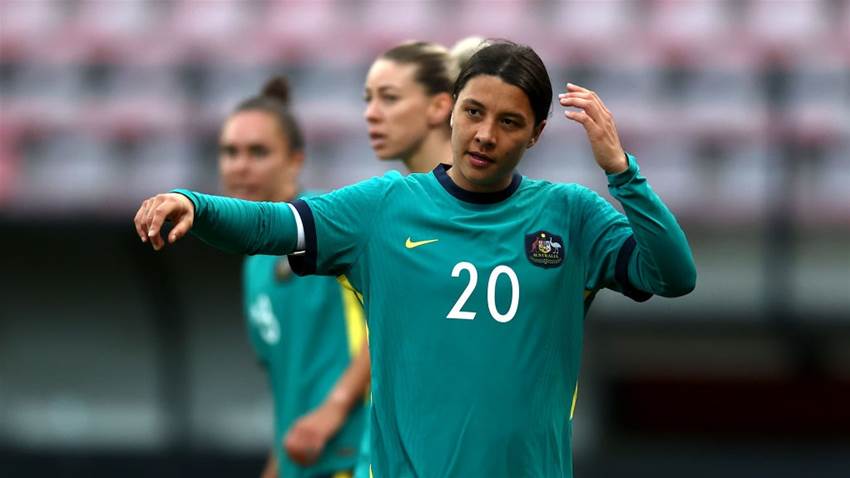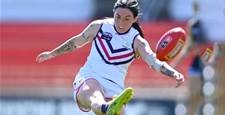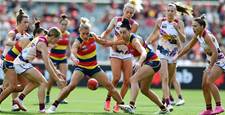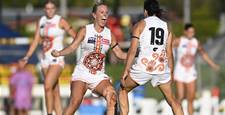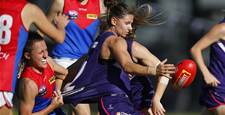25 players have been called up to the Matildas squad for June friendlies before the Tokyo 2021 Olympic Games.
The Matildas will meet later this month for two international friendlies against Denmark and Sweden. This will be the last meeting for head coach Tony Gustavsson’s squad before the Olympics next month.
The match-ups will be a good test ahead of Tokyo. Denmark are currently ranked sixteenth in the world. They are a tough team who were the runners up in the 2017 European Championships.
Sweden is ranked fifth in the world. They also will be one of the three teams that Australia will meet in Group G of the Olympics. This friendly will not only give the Australians a chance to play a formidable opponent, but also test them out what prior to what be a deciding match of their campaign to exit the Olympic group stage.
Gustavsson has called up twenty-five players for these friendlies. Olympic regulations call for a squad of eighteen players, with four players in reserve. This means that three players at a minimum have to be cut, taking in mind that no one else is added to the current called-up list.
The real question facing Gustavsson with regards to his future cuts though is not necessarily just about tactics or experience but also who to bring to Tokyo to meet the tournament’s demands.
The Olympic tournament is arguable the most gruelling for players. Not only does it have a smaller squad size than other tournaments, eighteen players versus the twenty-three allowed for the world cup, but games are also scheduled must closer to each other, every three days.
While reserves players can replace one of the regular eighteenth in the event of injury, they are otherwise not allowed to play.
This means that a coach must bring a mix of players who have the tactical abilities to meet anticipated opponents, but also the physical capabilities to deal with what could be six games in 16 to 17 days if they make it to the Bronze or Gold medal game respectively.
These two last friendlies are the place Gustavsson must decide which right set of players can counter what the Matildas will meet in the Group of Death.
Other than Sweden, they will also face the first ranked USA and twenty-second ranked New Zealand. Whether he can form a team able to exit out of Group G will be seen quite quickly.
Only the top two teams in the group, and the top two third-ranked teams in the tournament, proceed to the quarter-finals.
Recent performances by the Matildas though have put the prospect of exiting that group stage in doubt.
The Matildas had a devastating series of defeats in April. They lost 5-2 to second-ranked Germany and received a 5-0 trouncing to the third-ranked Netherlands.
The Australian women’s play was disjointed, lacking in communication and posed serious questions about the state of their defence.
Gustavsson has stated that he has discussed those games in length with his staff and is planning to address the key questions that arose both during the Matildas camp and their two friendlies.
He said at the time: “When it comes to building the roster, we need to ensure we have balance across the squad. We need different player types; we need depth in different positions and need some players that provide flexibility between the lines.”
His current twenty-five woman current squad is a mix of experience and youth. Four uncapped players are currently in the side.
Melbourne Victory’s Kyra Cooney-Cross, Western Sydney Wanderers' Courtney Nevin, Rosengård’s Charlotte Grant and IL Sandviken’s Teagan Micah have all played for the Young Matildas and are now vying for their first senior cap.
Montpellier’s Mary Fowler, SV Meppen’s Beattie Goad and Melbourne City’s Alex Chidiac are the other young relatively inexperienced players vying for game time and a ticket to Tokyo.
All have been capped but that is not an assurance of Olympic inclusion.
A surprise inclusion is that of Western Sydney Wanderers’ Caitlin Cooper. The 33-year-old has ten caps and last played for the Matildas in 2018. Meanwhile, Lisa De Vanna fails to make the cut.
To round out this youth Gustavsson has included a number of veterans, both young and mature.
This includes regular stalwarts Olympiques Lyonnais’ Ellie Carpenter, Everton’s Hayley RASO, Sevilla’s Aivi Luik.
It also includes a slew of veterans like Hammarby’s Elise Kellond-Knight, Chelsea’s Sam Kerr and Arsenal’s Caitlin Foord and Steph Catley.
Whether Gustavsson will change his starting line-ups during the Danish and Swedish from those who played the German and Dutch games will be seen.
Whatever he decides to field though should show his intention for the upcoming Olympic tournament.
Here is a full list of the squad:
Goalkeepers: Mackenzie ARNOLD (West Ham), Tegan Micah (IL Sandviken), Lydia WILLIAMS (Arsenal)
Defenders: Laura BROCK (Guingamp), Ellie CARPENTER (Olympique Lyonnais), Steph CATLEY (Arsenal), Caitlin COOPER (Western Sydney Wanderers), Beattie Goad (SV Meppen), Charlotte Grant (FC Rosengard), Alanna KENNEDY (Unattached), Courtney Nevin (Western Sydney Wanderers), Clare Polkinhorne (Vittsjo), Emily van Edmond (Unattached)
Midfielders: Alex CHIDIAC (Melbourne City), Kyra Cooney-Cross (Melbourne Victory), Amy Harrison (PSV Eindhoven), Elise Kellond-Knight ( Hammarby), Aivi Luik (Sevilla), Tameka YALLOP (West Ham)
Forward: Caitlin FOORD (Arsenal), Mary FOWLER (Montpellier), Emily Gielnik (Vittsjo), Sam KERR (Chelsea), Hayley RASO (Everton, Kyah SIMON (PSV Eindhoven).
Related Articles
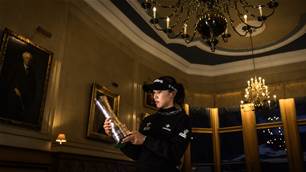
Lydia Ko becomes youngest Dame in modern history
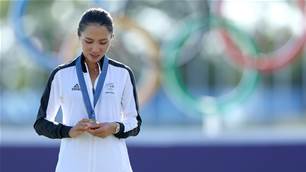
Ko proud of her climb back to the top after self-doubt

